“Hey ho cabinet, we’re not backing down just yet”
The strike flag for the relay strike organized by FNV, AOb, and WOinActie is flying at Flux today. The protest is an attempt to make the cabinet realize that their cuts to education are poorly thought-out. About two hundred people are marching to the city hall to hand over 1,468 signatures.
As TU/e and Fontys students and staff wait in line for fries – provided by the organization – a light rain falls; but during the speeches explaining the reasons for the strike, the weather clears. Strike leader Bernard Koekoek of FNV is rehearsing the chants for the march to city hall. “’Don’t do it,’ was the chant used at the Malieveld protest. That helped to some extent, but the Spring memorandum shows that the cabinet is once again trying to demolish education. So now, we’re shouting: ‘Stop the demolition.’”
Other popular chants include “Education is a right, not a privilege” and “Hey ho cabinet, we’re not backing down just yet. Hey ho BBB, this will bring you misery.” This last line is repeated with acronyms of each of the three other governing parties: PVV, NSC and VVD.
Student Lieke van der Zee, who initiated the day of action in Eindhoven, concludes her speech with: “We will not accept cuts to education or our future.” Professor Paul van der Schoot also takes the stage and emphasizes the importance of solidarity. “This strike is part of the largest set of education protests in the Netherlands. It’s not about right or left, but about right or wrong. “We’re showing solidarity with other groups affected by the cabinet’s poorly thought-out budget cuts.”
Among the protesters are many PhD candidates. Five physicists are concerned about their academic careers, but also point to global issues. “We want to seize the opportunity to develop innovations, and that leaves no room for budget cuts.”
Jan Heemstra, a PhD candidate in Computer Science, is thinking even further ahead. “I’m worried about this cabinet’s shortsightedness. There’s also a risk of growing autocracy. Because as education deteriorates, people eventually lose a clear sense of their own voice and ability to express themselves.”
Sharmistha Bhattacharyya is a researcher at Electrical Engineering and she is on strike all day, because a smaller budget puts her research – and the energy transition she is working on – at risk.
During the march towards the city center, management assistant Helmi van Lieshout explains that science is an abstract concept for many people. “Not everyone realizes that budget cuts also affect inventions we use every day. MRI scans, phones, medication, and television – these are all products of scientific research. That’s why I think it’s important to join this march.”
Since Stadhuisplein is being prepared for the King’s Night festivities, alderman Stijn Steenbakkers has walked out to meet the crowd near the Catharina Church. It’s only here that Koekoek reveals how many people signed the petition. “It’s very special that as many as 1,468 busy people took the time to do this during the Easter period,” he adds. Steenbakkers accepts the cardboard symbolizing the digital petition “with love.” But the strike leader isn’t quite satisfied with that. “But what are you going to do with all those signatures? Who will you pass this on to?”
Steenbakkers makes the following promise: We’ll discuss it with all the contacts we have. We will try to make the best of it.”
Finally, Sep Wittenbols, a municipal council member for GroenLinks and student in Nijmegen, takes the microphone. “Where is this generation supposed to draw hope from? Things could be different. Cabinet, invest in the future!”
Initiator Lieke van der Zee is pleased with how the day of action has played out. “Compared to other university cities, the turnout may have been small, but we still made our voices heard loud and clear.”
Tomorrow, there will be a strike in Delft, which will be the final one in the relay. “But it doesn’t stop after tomorrow,” says Koekoek. “We will keep going until the cabinet’s demolition plans are off the table.”
All photos in this article | Norbine Schalij
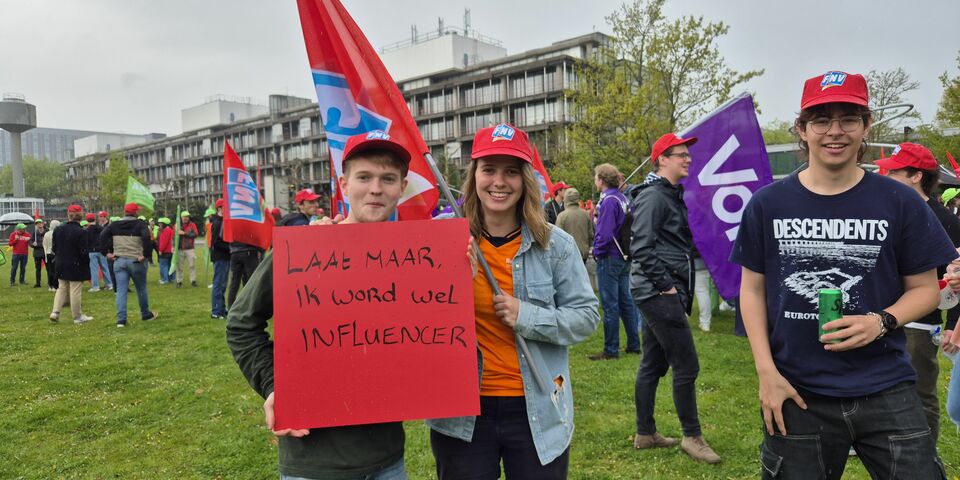

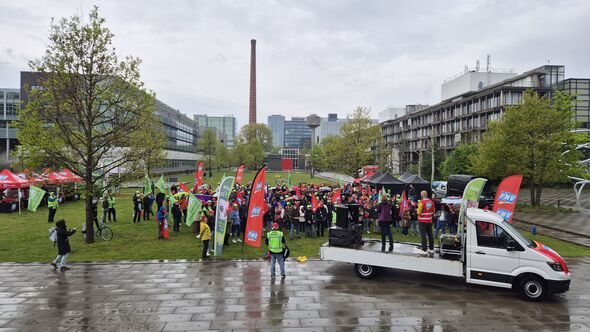
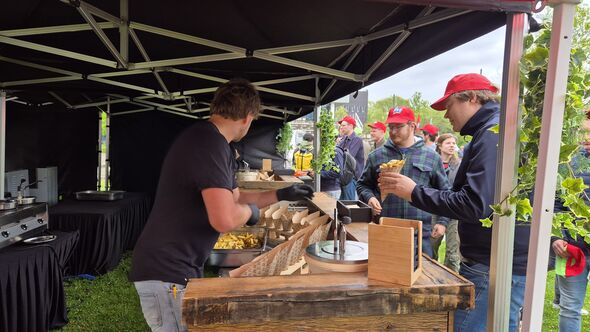
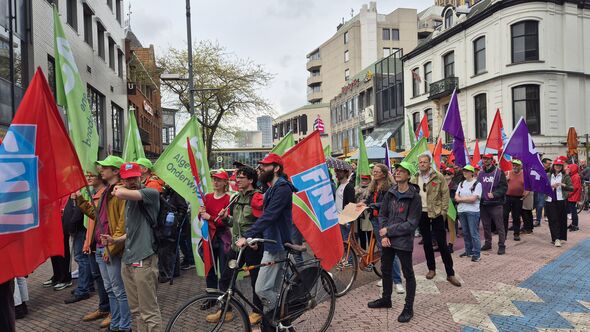
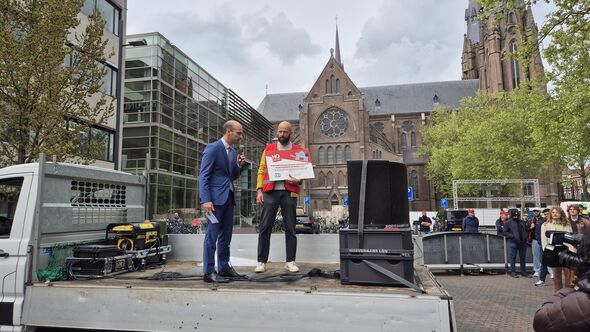
Discussion